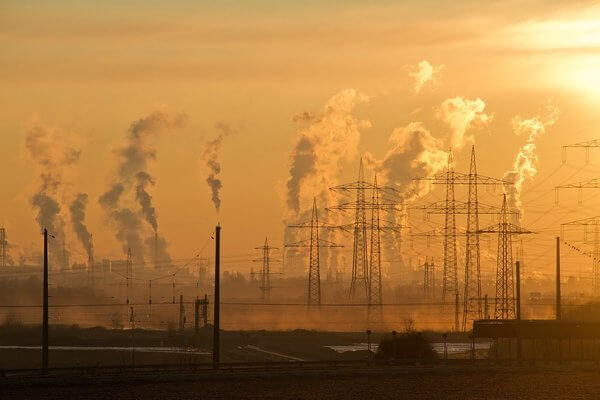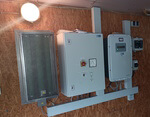News Release from windfair.net
Wind Industry Profile of
More climate protection thanks to war?
It was nothing less but a "turn of the times (= Zeitenwende)" that German chancellor Olaf Scholz announced in his speech at a special session of the German parliament: Germany is making a 180-degree turnaround in its defense and security policy, drastically increasing its military spending in the coming years. In addition, the country will reduce its dependence on Russian gas. Instead, Germany will be supplied primarily with renewables in the future. Initially, liquefied gas will be used as a transitional technology. Thus two corresponding terminals are being built in the north German towns of Brunsbüttel and Wilhelmshaven, located at the North Sea. According to the German Chancellor, these could later be used for green hydrogen.
Demands that were previously heard mainly from the Greens are supported by all democratic parties in Germany since Russia's attack on Ukraine. Germany's Finance Minister Christian Lindner of the Liberal Party (FDP) even spoke of renewables as "freedom energies." "It was not an easy decision, but a necessary one," Dieter Janecek, economic policy spokesman for the Green Party, clarified to media outlet Redaktionsnetzwerk Deutschland on the subject of LNG, because the use of fracked gas from the US is not without controversy in Germany either.
What the renewables industry worldwide has been demanding for years is likely to become reality in the face of the crisis. "A warmonger is not a reliable partner," said German Economics and Climate Minister Robert Habeck (Greens) before a special meeting of EU energy ministers, shortly after the German government had announced the end of the Russian-German gas pipeline Nord Stream 2. This was followed on Monday by the formulation of a new reality: according to a benchmark paper that was initially made available to Reuters, the plan for reforming the German Renewable Energy Sources Act now envisages Germany being fully supplied with renewable electricity as early as 2035 instead of 2050. This is to be achieved through a massive expansion of wind and solar energy, including the acceleration of approval procedures.

Europe must plan its energy supply from scratch in the coming years to free itself from Russian dependencies (Image: Pixabay).
This will bring the country closer to fulfilling the Paris climate agreement. Nevertheless, Rixa Schwarz, head of the International Climate Policy team at NGO Germanwatch, warned after the publication of the IPCC report, "We need a comprehensive global system to protect against the destructive force of the climate crisis. [...] Germany, too, must keep its commitments on climate finance."
The Russia-Ukraine war could now lead to a decisive acceleration of plans not only by Germany but by the entire European Union to increase the share of renewable energies this decade. Initial stock market reactions have already followed, with gains in shares of renewable energy companies on Monday in stark contrast to companies heavily dependent on Russian fossil fuels, BNN Bloomberg reports. Shares of turbine manufacturer Vestas gained 15%, Siemens Gamesa 12% and Nordex as much as 20%. Denmark's Ørsted, the world's largest developer of offshore wind farms, also gained 9.7%.
And while there are calls from some to keep nuclear or coal-fired power plants in operation, that can and should not be a solution to the threat posed by Russia. Writing for The Guardian, Bill McKibben (Middlebury College) pointed out another key advantage of renewables over fossil fuel power plants, in addition to all the umpteen others mentioned: "There are far fewer central nodes to attack with cruise missiles and artillery shells – targeting reactors is pretty easy, but driving your tank across Europe from one solar panel to the next to smash it with a hammer is comical."
- Author:
- Katrin Radtke
- Email:
- press@windfair.net
- Keywords:
- Russia, Ukraine, War, Germany, EU, dependece, fossil, renewable energy, demand, policy, climate change, IPCC, report, approval
























